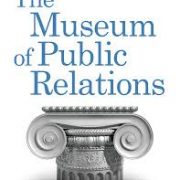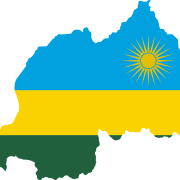Bell Pottinger: Is the Public Relations Industry Experiencing An Ethics Crisis?
Article by Tina McCorkindale, Ph.D., President and CEO, Institute for Public Relations
Yesterday, I received a call from one of the public relations industry’s trade publications about the Bell Pottinger case to give my opinion on whether what happened in the U.K. could happen in the U.S., and if our industry was experiencing an “ethics crisis.” My response was no. We have seen unprincipled behavior in our industry’s past, whether it’s from astroturfing[1], agencies representing questionable clients, or companies doing the wrong thing. These are typically one-offs. What is different in the Bell Pottinger UK case is the global spotlight on this unprincipled behavior.
Our industry is not the legal industry. The bedrock principle that everyone deserves legal representation when accused of a crime should not apply to us. Representing unscrupulous clients degrades our industry and the Bell Pottinger UK case is a good reminder of this. We need to take a look within our organizations and ensure there is a codified process of checks and balances to ensure we are behaving ethically and not taking on dishonest clients. Short-term gains do not equal long-term success. If built on a stack of cards, those cards will eventually fall. Transparency is critical. One useful guidepost to apply is the “ethic of care” theory that takes into consideration the “other” with four elements: attentiveness, responsibility, competence, and responsiveness.
This case also raised questions about who knew what and a potentially troubled culture within Bell Pottinger UK, which one former employee called “toxic.” Additionally, some internal decision-makers were unaware of the work done for Oakbay. Agencies must operate with a conscience. The work of a handful of employees can taint the reputation of an agency on a global scale, and have a significant impact on the lives of employees who had no involvement in this scandal.
Being ethics-oriented is key, but it takes work. Former U.S. Supreme Court Justice Potter Stewart once said, “Ethics is knowing the difference between what you have a right to do and what is right to do.” This is not always easy. Decisions are complex and sometimes information is missing. Other times, we can get distracted by the shiny ball. Cognitive dissonance and groupthink are two theories that give evidence to why we make poor decisions. Clearly, Bell Pottinger UK in this case was not focused on “what is right to do” in terms of this specific client and they violated universal human rights.
I applaud the PRCA and their decision to expel Bell Pottinger UK from its association for five years. Having a prominent industry association swiftly condemn these actions and hold the organizations accountable is crucial for the reputation of our industry, and the stakeholders and communities we represent. I hope this serves as a reminder that we need to review our processes and hold our industry accountable.
About the Institute for Public Relations
The Institute for Public Relations is an independent, nonprofit research foundation dedicated to the science beneath the art of public relations™. IPR focuses on research that matters to the profession, providing timely insights and applied intelligence that professionals can put to immediate use. All research is available free at www.instituteforpr.org and provides the basis for IPR’s professional conferences and events.
[1] Astroturfing occurs when an organization or group presents itself as working for a public interest, while being sponsored by a corporate or political sponsor without disclosing the source of support.










